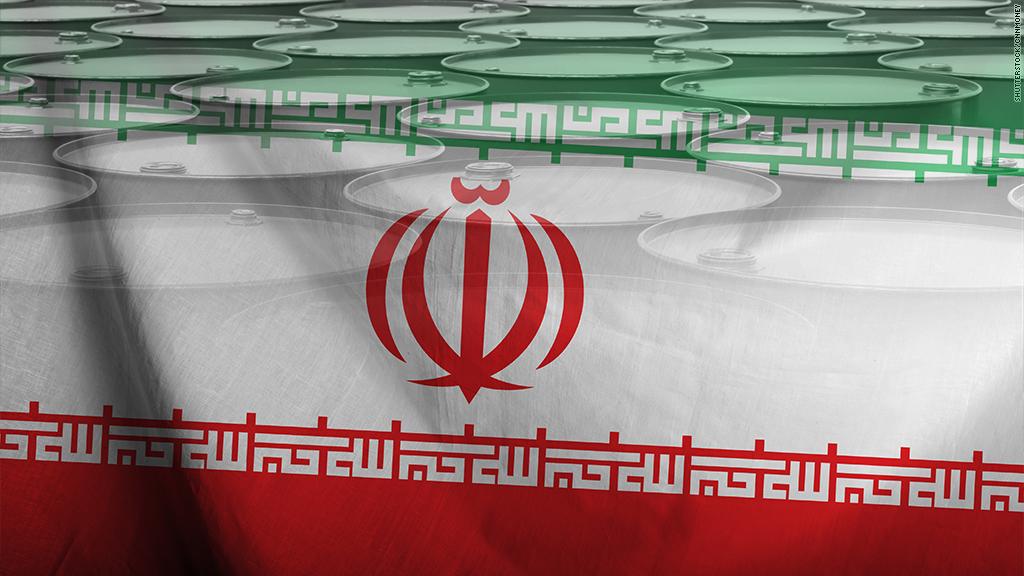
President Obama and Secretary of State John Kerry argue that if Congress doesn't approve the Iran nuclear deal, the U.S. dollar will fall from grace.
The dollar will "cease to be the reserve currency of the world" if the U.S. walks away, Kerry said Tuesday at a Reuters Newsmaker event.
It's an exaggeration, if not a misstatement entirely, say currency experts.
"I think he is factually wrong," said Marc Chandler, global head of currency strategy at Brown Brothers Harriman, in an email to CNNMoney. "I think this was rhetoric and an exaggeration, but it shows the high stakes politics involved."
Related: $2 gas will be back after Iran nuclear deal
Obama warns of more sanctions, severe disruptions
Recently, Kerry and Obama have argued that if the Iran deal doesn't pass, the U.S. would be forced to slap sanctions on anyone doing business with Iran going forward. That could be some of the world's largest banks or even our allies in Europe or China if they forge ahead with the deal and America doesn't.
That would not go down well. The fear is that these nations and banks might retaliate by ditching the dollar as their currency of choice.
Here's President Obama explaining it in an August 5 speech at American University:
"We'd have to cut off countries like China from the American financial system. And since they happen to be major purchasers of or our debt, such actions could trigger severe disruptions in our own economy and, by the way, raise questions internationally about the dollar's role as the world's reserve currency," he said.
Traders scoff: Replace the dollar with what? The yuan?
No question, such a situation could get ugly, but experts say the dollar isn't going anywhere.
What, after all are the alternatives? The euro? The Japanese yen? China's yuan? Bitcoin? They just aren't ready for that prime time role.
"The euro is too young and has suffered for Greece's long troubles," says John Kicklighter, chief currency strategist at DailyFX. "The Japanese yen is mired in decades of deflation in part due to fall out of its savings and loan crisis, and China proved again that the yuan is not ready after its large devaluation."
The world received another reminder today of just how far off China still is from being a world reserve currency after its central bank devalued its yuan about 2% overnight with more or less a hand wave.
The dollar is especially strong right now because people trust it. Iran deal or no deal, that's unlikely to change.
Related: China devalues yuan in shocking move
Oil will be traded in dollars, with or without Iran
Iran has the fourth largest oil reserves in the world, and it's eager for the end of sanctions so it can start exporting again. The expectation is that oil and gas prices are likely to fall further if that happens.
What's unlikely to change is that oil (and copper and diamonds and every other commodity) will continue to be traded in U.S. dollars, deal or no deal.
"The [dollar] still comprises the bulk of reserves around the world and is the primary transactional currency for natural resources," says Kicklighter.
If major events like the financial crisis and the downgrade of U.S. debt by Standard & Poor's in 2011 didn't cause the dollar to lose its status as the world's "go to" reserve currency, the Iran deal isn't going to do it, either.
There are a lot of valid economic debates, let alone political ones, to have about the Iran nuclear deal. The impact on the U.S. dollar isn't one of them.


